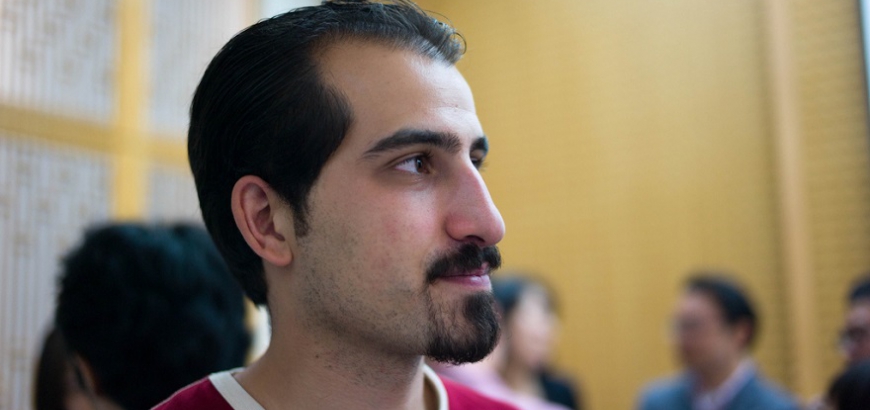The Assad regime in Syria executed the programming engineer and activist Bassel Khartabil Safadi in 2015, three years after he was arrested by Assad regime forces, according to his wife, Nouran Safadi.
Regime security arrested Bassel on March 15, 2012, on the first anniversary of the Syrian revolution against Assad family rule. He was born in Syria in 1981 to a Palestinian father and Syrian mother.
Nouran Safadi wrote on Facebook earlier this week: “The words stick in my throat as I announce today in my name, the name of Bassel’s family, and my family, my confirmation of the news that a death penalty was issued and carried out against my husband Bassel Khartabil Safadi.”
His widow, whom he married when he was in prison, said that his execution occurred “days after he was transferred to the Adra prison (Damascus countryside) in October 2015.” She said it was “an end worthy of a hero like him.”
She added that it was a “loss for Syria, a loss for Palestine, and a loss for me.”
Bassel Safadi rose to prominence for his involvement in Syria’s free internet movement, which calls for the use of unrestricted internet. The American Foreign Policy magazine put him at 19th place in the most 100 global thinkers for 2012.
Bassel’s free speech work resonated in a country which practices strict monitoring of the use of the internet, a service which did not enter Syria until the year 2000 after imposing restrictions and blocks on a number of websites.
The Human Rights Watch organization in 2016 reported that Safadi’s arrest seemed to be “a direct result of his peaceful and legitimate work for the promotion and protection of the right to freedom of expression.”
Safadi had launched in Damascus in 2010 the Aiki program for cooperative technology. “Because of Khartabil’s work, people gained new tools to express themselves and communicate,” The Guardian newspaper wrote in a 2015 profile on Safadi.
This article was translated and edited by The Syrian Observer. Responsibility for the information and views set out in this article lies entirely with the author.


